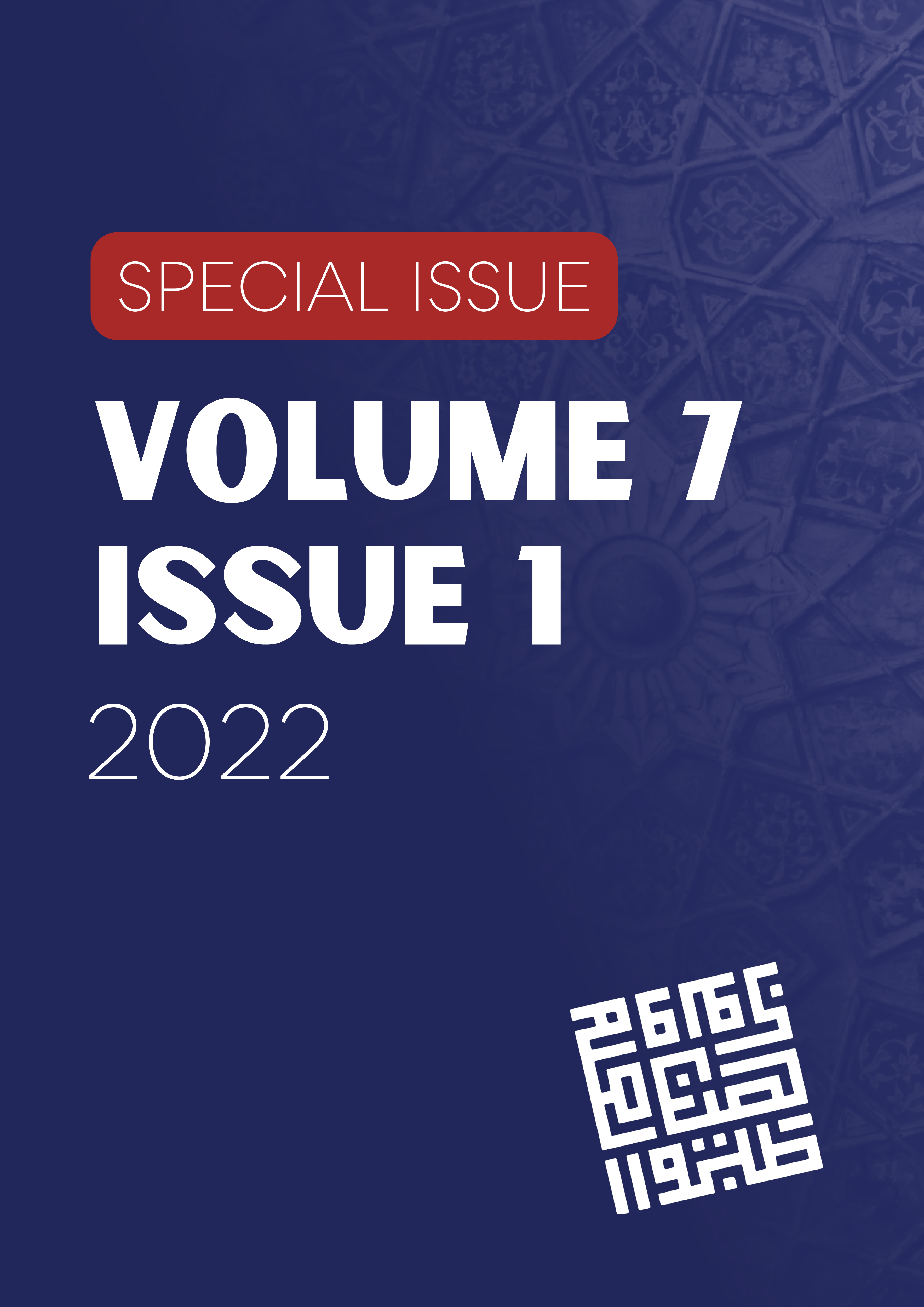The Diyanet Qur’ān Commentary Kur’an Yolu (Path of the Qur’ān): Methodology and Features

Abstract
Various Muslim commentators have contributed to Qur’ānic exegesis (tafsīr) from the Eastern to the Western regions of the Muslim world. Besides the Middle East, other regions were also influential in the literature and scholarship of tafsīr, such as Khorasan and Transoxiana. Another example is Istanbul, the libraries of which hold examples of most of the surviving tafsīr works and super-commentaries. We do not have an extensive body of scholarship on tafsīr knowledge/production in other parts of the Muslim world in English as such studies are of particular significance for the full history of tafsīr. For this reason, this article focuses on tafsīr production in modern Turkey with reference to the Diyanet (the Turkish Presidency for Religious Affairs) Qur’ān commentary Kur’an Yolu (Path of the Qur’ān). First, the article provides a brief overview of tafsīr production and culture in the Ottoman period (1299–1922) and in the period of the Republic of Turkey (since 1923) to contextualise the Diyanet commentary. Then, it analyses the Diyanet Qur’ān commentary Kur’an Yolu as official/institutional tafsīr, its major characteristics and methodology. A particular focus is devoted to the commentary’s Introduction (pp. 13-51). The article holds the view that, while the Qur’ān commentary Kur’an Yolu follows the classical mainstream Sunni framework and paradigm, it includes innovative perspectives, selections of alternative options along with critical engagement with the classical tafsīr and Islamic scholarship.
Keywords
Tafsīr, Ottoman, Republic of Turkey, Diyanet, Kur’an Yolu (Path of the Qur’ān)
References
- Ağkuş, Yusuf. “Kuran Yolu” Adlı Tefsirin Tefsir İlmi Açısından Değerlendirilmesi” [Evaluation of the Qur’ān Commentary “Kur’an Yolu” in Terms of the Discipline of Tafsīr]. Master’s diss., Selcuk University, 2008.
- Albayrak, Ismail. “Turkish Exegeses of the Twentieth Century: Hak Dini Kur'an Dili.” Islamic Studies 43, no. 3 (2004): 391-413.
- Bauer, Karen, ed. Aims, Methods and Contexts of Qur’ānic Exegesis (2nd/8th–9th/15th C.). Oxford: Oxford University Press, 2013.
- Boyalık, Talha, and Harun Abacı, eds. Osmanlıʼda İlm-i Tefsir [The Field of Tafsīr in the Ottoman]. Istanbul: ISAR, 2019.
- Çoruh, Hakan. Modern Interpretation of the Qur’ān: The Contribution of Bediuzzaman Said Nursi. Cham, Switzerland: Palgrave, 2019.
- Daneshgar, Majid, Peter G. Riddell and Andrew Rippin, ed. The Qurʾān in the Malay– Indonesian World Context and Interpretation. London and New York: Routledge, 2016.
- Ghazzâlî, Abu Hamid. Al-Mustaṣfâ fî ʿilmi’l-uṣûl [The Quintessence in Principles of Jurisprudence]. Bulak, 1324, I-II.
- Gunasti, Susan. “Approaches to Islam in the Thought of Elmalılı Muhammed Hamdi Yazır (1878-1942).” PhD diss., Princeton University, 2011.
- Gunasti, Susan. The Qur’ān between the Ottoman Empire and the Turkish Republic: An Exegetical Tradition. London and New York: Routledge, 2019.
- Ibn Khaldūn. Kitāb Tārīkh Ibn Khaldūn [The Book of History of Ibn Khaldūn]. https://al- maktaba.org/book/12320/737#p1.
- Karaman, Hayrettin, Mustafa Çağrıcı, Sadrettin Gümüş and İbrahim Kâfi Dönmez. Kur’an Yolu Türkçe Meâl ve Tefsir [Path of the Qur’ān Turkish Translation and Commentary], revised ed. Ankara: Diyanet İşleri Başkanlığı Yayınları, 2020.
- Knysh, Alexander. “Sufi Commentary: Formative and Later Periods.” In The Oxford Handbook of Qur’ānic Studies, edited by Muhammad Abdel Haleem and Mustafa Shah, 746-765. Oxford: Oxford University Press, 2020. https://doi.org/10.1093/oxfordhb/ 9780199698646.013.4.
- Mertoğlu, M. Suat. “Osmanlı ve Cumhuriyet Dönemi Kur’an ve Tefsir Literatürüne Toplu Bir Bakış -Birincil Eserler ve Onlara Dair İncelemeler” [A General Overview of the Qur’ān and Tafsīr Literature in the Periods of the Ottoman and the Turkish Republic - Primary Works and Relevant Studies]. Türkiye Araştırmaları Literatür Dergisi 9, no. 18 (2011): 9-66.
- Öztürk, Mustafa. “Cumhuriyet Dönemi Telif Tefsirler” [Tafsīr Works of the Turkish Republic Period]. Türkiye Araştırmaları Literatür Dergisi 10, no. 19-20 (2012): 9-59.
- Öztürk, Mustafa. Meâl Kültürümüz [Our Translation Culture]. Ankara: Ankara Okulu Yay., 2008.
- Öztürk, Mustafa. “Osmanlı Tefsir Kültürüne Panoramik Bir Bakış” [A Panoramic View of Ottoman Tafsīr Culture]. In Osmanlı Toplumunda Kur'an Kültürü ve Tefsir Çalışmaları -I- [Culture of the Qur’ān and Tafsīr Studies in the Ottoman Society], edited by Bilal Gökkir, Necdet Yilmaz, Necmettin Gökkir, Ömer Kara, Muhammed Abay and Mustafa Karagöz, 91-160. Istanbul: Ilim Yayma Vakfı Kur'an ve Tefsir Akademisi, 2011.
- Paçacı, Mehmet. “Kur’an,” VII. Açıklanması ve Y orumlanması [“Qur’ān,” VII. Its Explanation and Interpretation]. In DİA (Diyanet Encyclopedia of Islam), vol. XXVI, edited by Diyanet, 398-401. Istanbul: TDV İslâm Araştırmaları Merkezi , 2002.
- Pink, Johanna. “Tafsīr as Discourse: Institutions, Norms, and Authority.” Deconstructing Islamic Studies, edited by Majid Daneshgar and Aaron W. Hughes, 53-76. Cambridge, US: Ilex Foundation, 2020.
- Pink, Johanna. “Tradition, Authority and Innovation in Contemporary Sunnī Tafsīr: Towards a Typology of Qur’ān Commentaries from the Arab World, Indonesia and Turkey.” Journal of Qur’ānic Studies 12 (2010): 56-82.
- Ross, Samuel J. “The Importance of Ottoman Tafsīr: A Codicological Perspective.” In Osmanlıʼda İlm-i Tefsir [The Field of Tafsīr in the Ottoman], edited by Talha Boyalık and Harun Abacı, 521-537. Istanbul: ISAR, 2019.
- Saeed, Abdullah. Interpreting the Qur’ān. London: Taylor & Francis e-Library, 2005.
- Şener, Fatma Nur. “Osmanlı’da İlm-i Tefsir: Âlimler, Eserler ve Meseleler” [The Field of Tafsīr in the Ottoman: Scholars, Works and Themes]. Darulfunun Ilahiyat 30, no. 1 (2018): 305–310. Accessed March 20, 2022. https://www.researchgate.net/publication/ 334200656_Osmanli'da_Ilm-i_Tefsir_Alimler_Eserler_ve_Meseleler_14-15_Aralik_2018.
- Al-Suyūtī. Al-Itqān Fi ʿUlūm Al-Qur’ān [The Perfect Guide to the Sciences of the Qur'ān]. Saudi Arabia: Mucamma‘ Al Malik Fahd Li Tibae Al Mushaf Al Shareef, n.d.
- Waliyyullāh, Shāh. Al-Fawz al-Kabīr fī Uṣūl at-Tafsīr: The Great Victory on Qur’ānic Hermeneutics of Shāh Waliyyullāh. Translated by Ṭāhir Maḥmood Kiānī. London: Ta-Ha Publishers, 2014.
- Waliyyullāh, Shāh. al-Fawz al-Kabīr [The Great Victory]. Accessed April 21, 2022. https://al-maktaba.org/book/9964/4.
- Yazır, Elmalılı Muhammed Hamdi. Hak Dini Kur’an Dili [The Religion of the Truth, the Language of the Qur’ān]. Edited by Asım Cüneyd Köksal and Murat Kaya. Istanbul: Türkiye Yazma Eserler Kurumu Başkanlığı, 2021. Accessed April 4, 2022. http://ekitap.yek.gov.tr/urun/hak-dini-kur-an-dili--1-cilt-_743.aspx?CatId=279.
- Zadeh, Travis. The Vernacular Qur’an: Translation and the Rise of Persian Exegesis. Oxford: Oxford University Press, 2012.